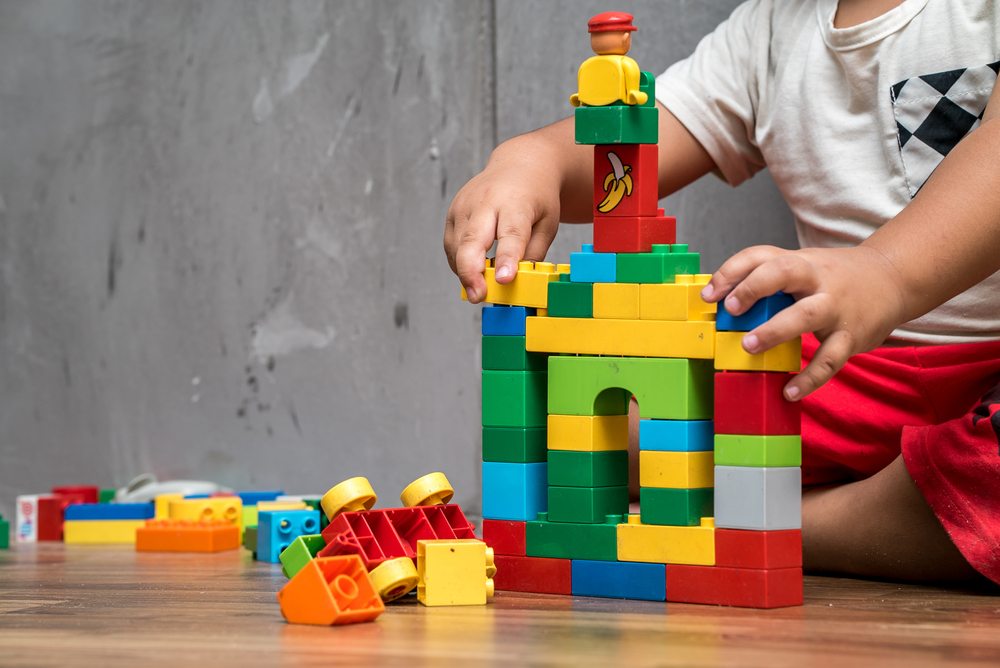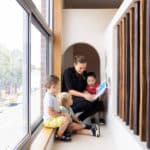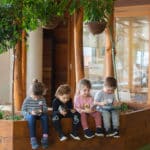Play is the first building block in learning, but what about the building blocks themselves? In this article, we’re delving into the specific skills that children can learn from the well-known toys, Lego blocks.
1. Communication Skills
Communication is equally vital for everyone: babies, children and adults. If we need or want something, we need to be able to clearly communicate this. Lego helps build this in two main ways.
Learning To Share
From a young age, it is important for children to understand the importance of other people. They can help and guide us and we can do the same for them in return. Lego helps develop these social skills by giving children the ability to work in groups to make creations. Once the creations are done, the children can play together and create exciting stories from their imaginations.
If the child is playing alone in a childcare centre or at home, they may still ask their family members for help – developing the emotional aspect of interacting with people and encouraging the child to accept that it is alright to need help.
Interpreting Instructions
Communication is not a one-sided street. At the end of each talker, there is a listener, and Lego helps children understand how to be a listener. They have to read, interpret and understand what somebody else has written. From there, they have to act. In childcare centres, they may have the help of another child to do so.
2. Puzzle Solving
Lego is, at its core, a puzzle. Children must follow instructions to re-create a building, place or environment, with varying difficulty. They must choose which block fits the description, where to place it and how it fits overall with the design. Once they do and the item is built, the puzzle is complete.
3. Emotional Growth
Along the way, they learn a variety of skills associated with problem-solving. When they feel like the puzzle just isn’t making sense, they are introduced to frustration. When they decide to stick with it and keep going, they learn how to acknowledge their feelings and overcome them – the valuable lesson of persistence. Then, once they complete the puzzle, they understand satisfaction.
All of these skills are important to learn at a young age because they allow children to develop emotionally, while also giving them a chance to explore puzzles and problem-solving. What we learn as a child benefits us in the future, which is why many early learning centres engage with Legos and other similar toys to teach problem-solving.
4. Fine Motor Skills
Although it is unlikely that we remember, there was a time when we did not know how to walk, run, or hold a pencil. Over time, likely with the help of caring adults, we developed these skills. Fine motor skills are vital for children’s development and are immensely aided through the use of Lego.
How Does This Work?
Simply through practice. When your child is playing with Lego, they are constantly moving their hands, adjusting the blocks and following instructions. Their actions must be concise and thought-out so as to achieve the desired result. Through thorough engagement with the child’s motor skills, Lego improves them. As the old saying goes, practice makes perfect – Lego helps them practice in an engaging, educational way.
5. Inspiring Creativity
Children have immense imaginations which Lego can tap into. By giving children the ability to be creative – to create whatever tickles their fancy – children are given the chance to express themselves in beneficial ways.
They may follow the instructions or create something completely new, expanding their imagination and linking it to the real world. Later, when they become adults, this skill of imagining will prove useful in many different ways, including goal setting, emotional capabilities and problem-solving.
Grow with Lego
If you think your child would benefit from activities such as Lego, consider enrolling them in one of our two ToBeMe early learning centres, either in Burwood or Five Dock. If you have any questions about our activities, or if you would be interested in booking a tour, please contact us on (02) 9744 0066 or visit our contact page.
Comments are closed.






